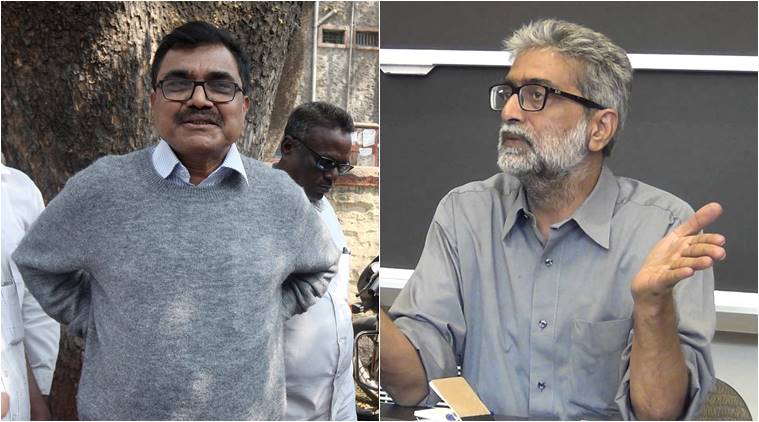 Activists Anand Teltumbde and Gautam Navlakha are accused of being part of the Elgar Parishad event held in Pune on December 31, 2017. (File Photos)
Activists Anand Teltumbde and Gautam Navlakha are accused of being part of the Elgar Parishad event held in Pune on December 31, 2017. (File Photos)
Anand Teltumbde and Gautam Navlakha’s petitions seeking anticipatory bail were rejected by the Supreme Court Monday in connection with the Elgar Parishad case. The apex court gave the activists two weeks time to surrender, and ordered they submit their passports to authorities immediately.
Navlakha and Teltumdbe are charged under various provisions of the Unlawful Activities Prevention Act (UAPA) and are accused of being part of the Elgar Parishad event held in Pune on December 31, 2017.
Supreme Court rejects anticipatory bail plea of Anand Teltumbde & Gautam Navlakha. Three weeks time to surrender. To surrender passports forthwith. @IndianExpress
— Ananthakrishnan G (@axidentaljourno) March 16, 2020
The duo had moved the top court after a single-judge bench of the Bombay High Court rejected their pleas for anticipatory bail. On February 14, HC judge Justice Prakash D Naik extended their interim protection from arrested by four weeks to appeal before the SC.
In the HC, the Pune police argued that Teltumbde was an active member of banned CPI (Maoist) group and was working for its alleged frontal organisations such as Anuradha Gandhi Memorial (AGM), Committee for Protection of Democratic Rights (CPDR) and Indian Association of People’s Lawyers (IAPL). It claimed these organisations were creating an anti-government atmosphere in public.
Teltumbde’s lawyers, rejecting the state’s arguments, said that documents produced were not corroborated.
Explained | A quick recap of the Elgar Parishad case
Meanwhile, the police said Navlakha was involved in raising funds, recruiting cadre and weapon deal for banned Maoist group and was part of a “larger conspiracy” to destabilise the government.
Navlakha argued that he had undertaken fact-finding visits in tribal areas as a civil rights activist. The visits, he said, were for a purpose of documenting the impact of alleged unrest and violence on locals.